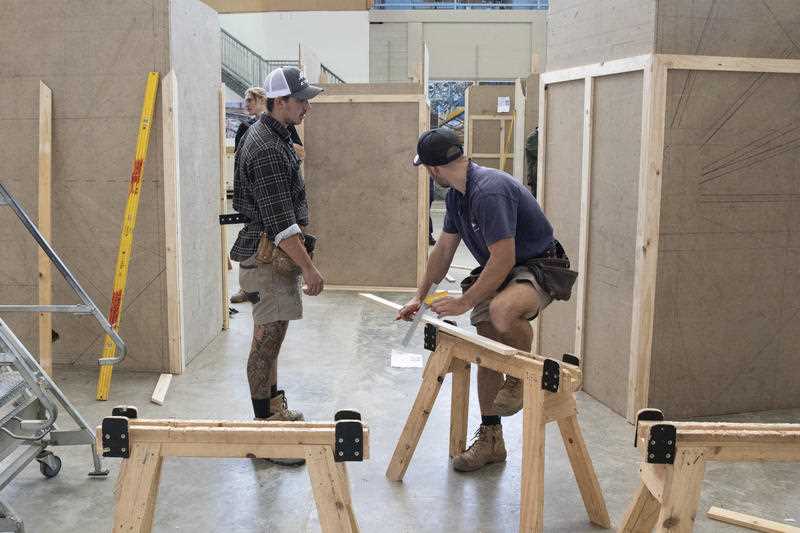Hundreds of thousands of Australians will be able to upskill for free as the Albanese government looks to drag the country out of a skills shortage.
An extra 300,000 TAFE and vocational education training places will become fee-free from the beginning of next year, as part of a new five-year national skills agreement brokered with the states and territories.
Treasurer Jim Chalmers says the $3.7 billion investment in people and their skills, announced in the 2023/24 federal budget, will lay the foundations for Australia’s economic future.
Plugging holes in clean energy, defence and aged care are at the centre of the government’s skills drive.
Treasury forecasts 20,000 jobs will be required over the next 30 years to develop the AUKUS submarine program, while greater investment in national security will require high-skilled and well-paid jobs in science, engineering and cyber.
An additional $72.4 million will go towards training childcare workers, while aged care employees will receive a 15 per cent wage boost after the government chipped in $11.3 billion.
“The heroes of the pandemic deserve more than our thanks; they deserve fair pay for their vital work,” Dr Chalmers said in his budget speech on Tuesday.
“This pay rise will help retain, reward and recruit the hard-working people who care for our loved ones as they grow old.”
Aged care providers are struggling to find workers to meet mandatory staffing requirements aimed at improving quality of care.
A change to international student working rights will aim to boost the supply of nursing home staff.
Most international students will soon be limited to working 24 hours per week once employment restrictions unwound during the pandemic are reinstated.
However, there will be a carve out for student visa holders working in aged care.
As industries battle for skilled employees to plug workforce holes, record immigration is keeping unemployment low but that’s expected to change in 2023/24 when the jobless rate is forecast to rise to 4.25 per cent.
Treasury forecasts net migration will surge to 400,000 this financial year as pent-up demand from pandemic travel restrictions contributes to a jump in arrivals.
But migration levels are predicted to come back down to a longer-term level of 190,000 places after the one-off boost, with 70 per cent going to skilled migrants to address shortages.
The government will increase the minimum income threshold for skilled migrants to $70,000 after the coalition government froze it at $59,300 10 years ago, to ensure highly-skilled migrants do not end up working in low-skill jobs.
More changes to workplace relations laws are also in the works, with the government promising to criminalise wage theft, install minimum standards for gig economy workers and progress same job, same pay rules for labour hire.
By Jacob Shteyman in Canberra



